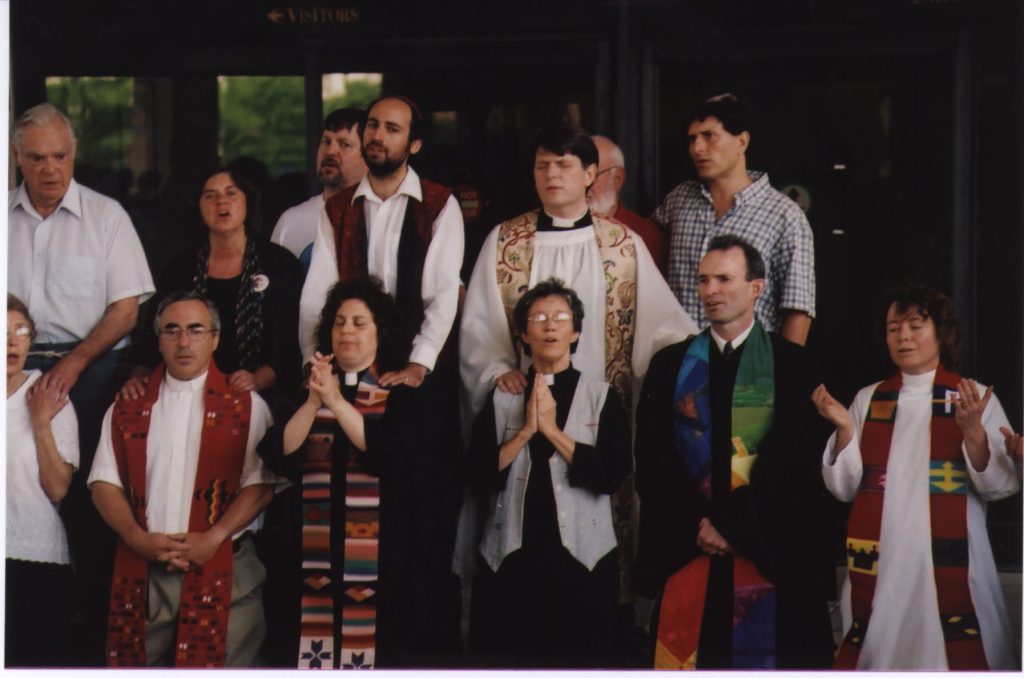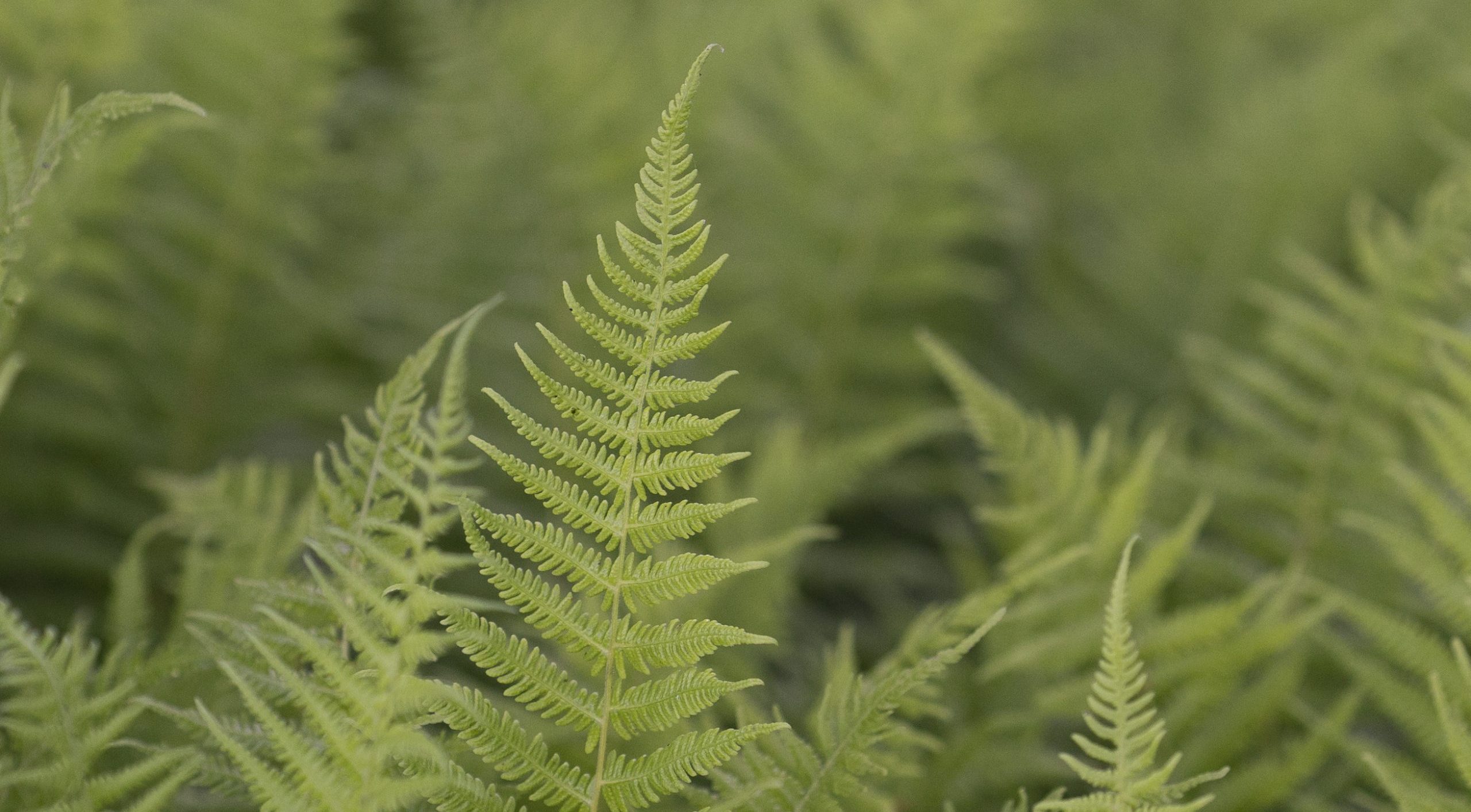I want to tell a story about what it was like to be arrested for the first time. Why tell this story now? Because climate change is accelerating. Because we need to consider every possible tool at our disposal to preserve a habitable world. Because deep social change requires a movement of disciplined, peaceful warriors for life. Because we hear the call to serve something larger than ourselves. Because sometimes that call drags us out of our comfort zone.
Before I tell the story, here come three clusters of reflection questions.
- Under what conditions would you consider being trained in the principles and practices of peaceful civil disobedience? Under what conditions would you consider supporting people who were risking arrest? Under what conditions would you risk arrest yourself?
- Who are the people who inspire you to do more than you thought possible? With whom do you hold hands, literally or figuratively, when you step out to make a difference in the world?
- Gandhi said, “My life is my message.” What is your message?
The background: After years of combining parish ministry and climate activism, in 2001 I decided to head to Washington, DC, to join a brand-new (now defunct) interfaith group, Religious Witness for the Earth, in protesting the Administration’s energy policy and its intention to expand oil production in the Arctic.
On the first day we learned about oil drilling and the Arctic, about climate change and fossil fuels. On the second we lobbied our members of Congress and studied the disciplines of non-violent civil disobedience. On the third, about a hundred of us marched down Independence Avenue in religious vestments, carrying banners and singing. When we reached the Department of Energy, an enormous stone structure surrounded by police, we held a brief worship service. So far, everything was legal. Then came the part that wasn’t.
What follows is an excerpt from an essay1 I wrote about the decision to carry out civil disobedience and the experience of being arrested and spending time in jail.
__________________________________________
The worship service was coming to an end. We sang “Amazing Grace,” and then the twenty-two of us who had decided to risk arrest joined hands and walked slowly to the doors of the Department of Energy.
I felt us cross an invisible boundary. With the others, I stepped over a threshold I could not see. I walked out of my ordinary life.
I am neither a lawbreaker nor a thrill-seeker. More often than not, I follow the rules – even enforce them. I fasten my seat belt, don’t cheat on taxes, write thank you notes, and stand up when the band plays our national anthem. But here I was, intentionally and publicly breaking the law. As if some inner revolution had quietly taken place, the old “me” was no longer in charge. Whatever security I’d felt in operating within the rules was gone. That’s partly why I felt so frightened as I left the safety of the circle and moved toward the door: I hardly recognized myself. I hardly knew who I was.

We stand or kneel in prayer, our backs to the building.
The pavement under my knees is hard. At home, I often sit on a meditation cushion to pray. Today there is no cushion, just the weight of my body against stone. I lift up my hands. I’m dressed for Holy Communion. I might as well hold out my arms as I do at Communion.
Instead of pews filled with parishioners, I see ranks of police and a cluster of supporters. I am afraid. I’ve never been arrested before. Years ago, as a VISTA volunteer in Mayor Rizzo’s Philadelphia I heard countless stories of police brutality. It’s not that I really expect the same thing to happen to me – the punch in the gut, the assault behind closed doors. Still, my body tenses as I place myself against the cops, the Feds, the law.
I close my eyes. One by one we pray aloud, words thrown into space, words hurled against stone.
Is this whole thing ridiculous? I briefly open my eyes and notice a well-dressed man watching us. He strokes his tie, leans over, and says something to a fellow nearby. The two of them chuckle. I have no idea what they’re talking about, but I wonder if they think we look absurd. I suppose we do. Here we are with our jerry-rigged signs, our predictably earnest songs and prayers of protest, a foolhardy band straight out of the ‘60’s.
Defensively, I imagine confronting that mocking man with the arsenal of our credentials. “We’re no rag-tag bunch,” I want to tell him. “We’re people with doctorates and master’s degrees – nurses and ministers, writers, and accountants. Thoughtful people, educated people, professionals.”
I am distracted from prayer by this indignant outburst. “Let it go,” wisdom tells me. “None of that matters – your degrees, your skills, your status in the world. The privileges of race and class mean nothing now. You’re a woman on your knees, that’s who you are – one human being pleading with God.”
I turn my attention back to prayer and continue to stretch out my arms. Suddenly I realize that beneath the tension, beneath the fear and self-consciousness, something else is welling up. I am jubilant.
“Lift up your hearts,” I might as well be saying to the people before me, beaming as broadly as I do at Communion.
“We lift them to the Lord,” would come the response.
How did I miss it? After years of going to church, after years of celebrating Communion, only now, as I kneel on pavement and face a phalanx of cops, do I understand so clearly that praising God can be an act of political resistance. That worship is an act of human liberation. The twenty-two of us come from different faith traditions, but each of us is rooted in a reality that transcends the rules and structures of this world. Tap into that transcendent truth, let the divine longing for a community of justice and mercy become your own deepest longing, and who knows what energy for life will be released?
I feel as defiant as a maple seedling that pushes up through asphalt. It is God I love, and God’s green earth. I want to bear witness to that love even in the face of hatred or indifference, even if the cost is great.
So what if our numbers are small? So what if, in the eyes of the police, in the eyes of the world, we have no power? I’m beginning to sense the power that is ours to wield, the power of self-offering. We may have nothing else, but we do have this, the power to say, “This is where I stand. This is what I love. Here is something for which I’m willing to put my body on the line.”
I never knew that stepping beyond the borders of what I find comfortable could make me so happy. That shifting from self-preservation to self-offering could awaken so much joy.
_________________________________________________
- Adapted from “When Heaven Happens” by Margaret Bullitt-Jonas, in Heaven, ed. Roger Ferlo (NY: Seabury Books, 2007), 74-85.
This article was published on November 2, 2023, in “Going Deep,” one of two newsletters published by Third Act Faith. (You can find the article here.) The other newsletter, Third Acts of Faith, provides members and subscribers with all the latest “News & Views” for the month. To learn more and to join Third Act Faith, visit here.


2 Responses to “Risking arrest, standing for love”
Nick Warren
Margaret, this is a wonderful piece. Thanks so much for articulating what so many of us have felt in similar circumstances, but (in my case, at least) without the grounding in organized religion. .
mbj
Thanks for reading and commenting, Nick. I read somewhere that there are two great days in a person’s life: the day we were born and the day we discover why. It’s all about finding ones deepest love and then trying to embody that every day.